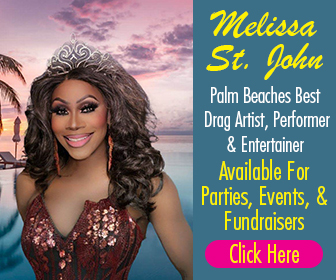
Arraignment Date Set for Craig Jungwirth
An arraignment date has been set for Craig Jungwirth on a misdemeanor stalking charge.
...
Latest

Upcoming Ugandan Census Will Not Count Intersex People
Uganda’s national Census next month will not count intersex people.
...

The Business Corner | Opinion
I'd say it is a surprise, but it is becoming the norm that the jobs report far outpaces common estimates.
...
Follow Us

Mich. Democrats Spar Over LGBTQ-inclusive Hate Crimes Law
Michigan could soon become the latest state to pass an LGBTQ-inclusive hate crime law, but the state’s Democratic lawmakers disagree on just what kind of law they should pass.
...

Senate Committee: Republican Attorneys General Abused Power Demanding Trans Medical Records
In a 10-page report released on April 16 by staff for the Democratic majority of the U.S. Senate Finance Committee, the Republican attorneys general of Tennessee, Missouri, Indiana, and Texas are accu...































